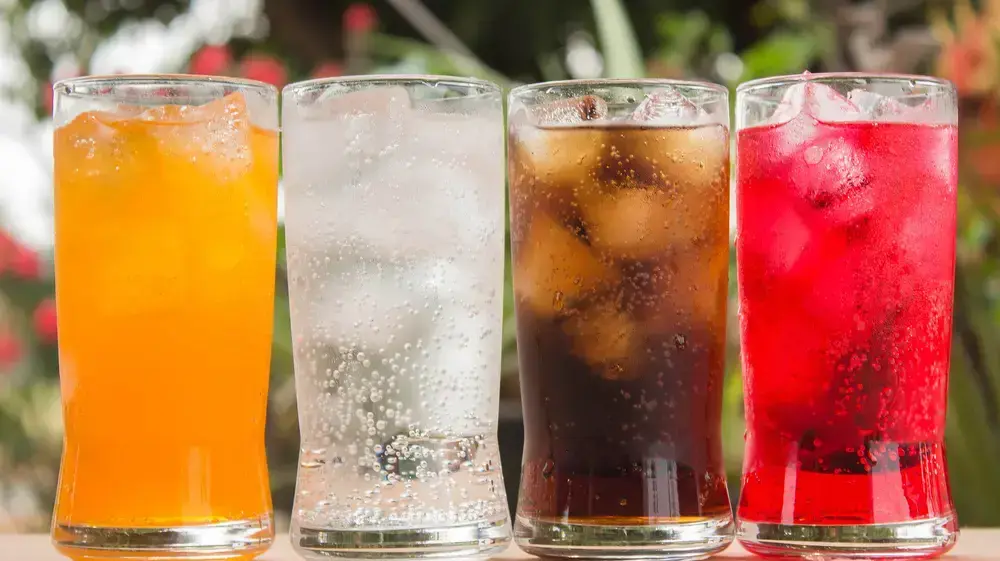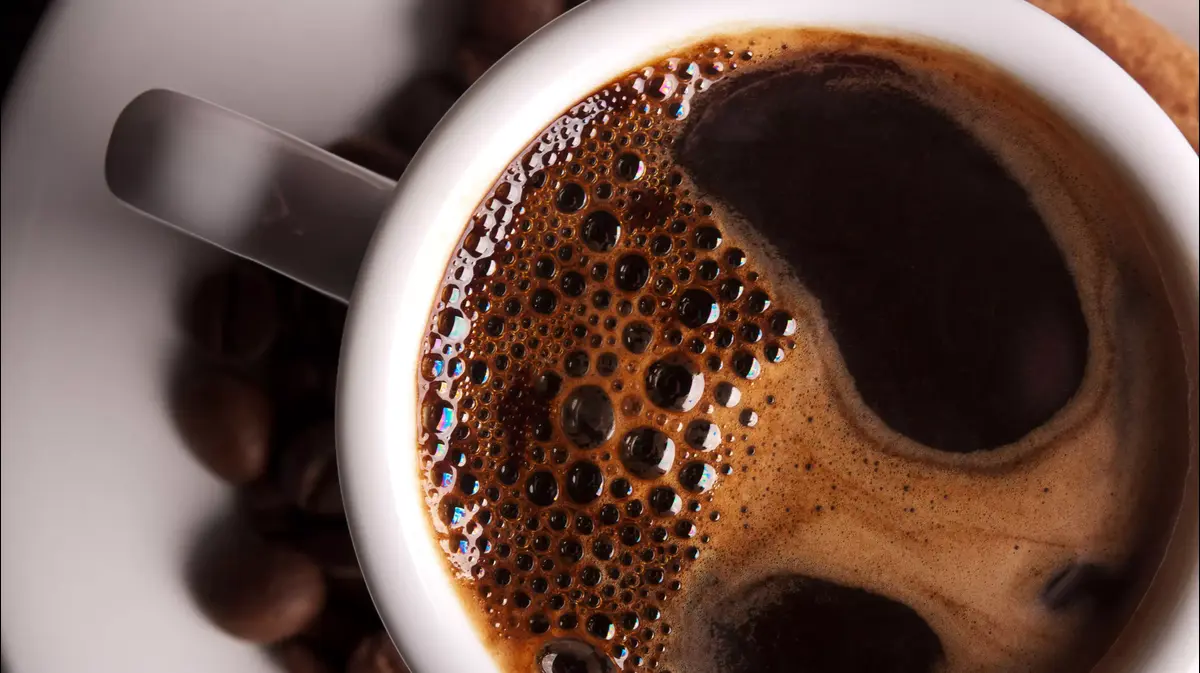Soft drink, heavy price: who really finances the reform?
During the Passover period, our purchases in the supermarket decreased compared to the spring holidays in previous years.
The one that did show an increase is precisely the industry that has been hit hard by a reform in its field: soft drinks.
It's not that we're drinking more, but that we're just paying for the government's ambition to educate us - and on the way to filling the coffers
Dr. Hezi Gur Mizrahi
25/05/2022
Wednesday, 25 May, 2022, 10:49 Updated: 11:19
Share on Facebook
Share on WhatsApp
Share on Twitter
Share on Email
Share on general
Comments
Comments
April 2022 saw a 6% jump in sales volumes of consumer goods in the retail market.
Despite the jump, the market is still down 1.9% from last year.
The market trends presented a segmentation of purchases in the days of Passover, the days before it and the days after the holiday.
According to the data presented in the Sterncast report for April, food products showed a decrease in purchases during the holidays, as did the care products.
These data can have three factors that can cause results.
The first factor is the possibility that the prices of food and grooming products were reduced compared to the previous year (a situation that did not actually happen, the consumer price index grew by 4.4%).
The second explanation is the opening of the tourism market compared to almost zero flights in the previous year, which led to low consumption since hundreds of thousands of Israelis stayed abroad.
More on Walla!
Hair removal in just 18 minutes: A new Israeli development introduces a unique technology
In collaboration with Leonardo Cosmetics
Market shares of the various soft drink companies (Photo: Daniel Malakhovsky)
Liquid drink
Those who have shown the most impressive growth, despite the reform that will make them very expensive, are the soft drinks whose sales have risen by 27.8%.
Unfortunately this figure does not only reflect the importance of the segment on days characterized by increased hospitality and multi-participant meals, but the fact that we paid a lot more money for these drinks.
Before examining the reform and its implications, it is very important to know the beverage market in Israel.
Apparently the reform will increase the price of an average soft drink bottle from a price of NIS 3.38 to a price of NIS 4.09.
That is, an increase of 21%.
But in practice, if we refer to the common products in the shopping basket, then the actual price increase is closer to 40%.
There are three major players in the local market, which are the main beverage company (Coca-Cola), Tempo Vipora, which have well-known and beloved brands for the local consumer and manage to present a good grip on the market.
Even before the reform, the very rise in awareness of the dangers of increased sugar consumption led to a slowdown and decline in sales, a reality that forced the big players to reinvent themselves every season and every month, with new flavors, original marketing, massive media presence and investment in various markets.
It should also be remembered that unlike other areas in the food sector, the Corona period did not benefit them, as a large part of their income is based on the institutional market: hotels, restaurants, cafes and bars.
Prices go up and sales go down.
Large companies report decline (Photo: ShutterStock)
The big three
The main beverage company owns a number of well-known brands, the first of which is Coca-Cola, and its brands include: Fanta, Kinley, Fuse T, Monster, Prigat and Malti.
The company also owns well-known alcohol and beer brands: Johnny Walker, Smirnoff, Carlsberg-Tuborg and others.
Tara, a company that owns it, markets refrigerated refrigeration products.
The company's turnover for 2021 was about NIS 6 billion.
Tempo, a company that specializes in soft drinks, owns brands such as: Pepsi, Myrdna, Saban Up, Jump, Jumax, Island and Sapa.
Among its alcohol brands are well-known names like Absolute, Jameson and many others.
In the field of beer, it owns local brands such as Goldstar, Maccabi and Nesher, along with international brands such as Heineken.
Tempo rolls in about NIS 1.4 billion a year.
The third company is Yafora Tavori with a variety of leading brands such as: Spring, Tapuzina, Schweppes, Crystal, RC Cola, Prot Water and Prot & Wage.
It rolls in more than NIS 900 million a year.
As we see in the recent investments of energy companies following the changes in the market, and beyond new and greener energy, so we also see in beverage companies investments in additional brands and acquisitions of companies also in the beverage segment - with the most recent act being the merger and acquisition of Carmel Wineries And even surprised sales during the Corona Crisis) into the euphoria.
And outside of it, like the acquisition of a cheese company by Tempo.
A glass of chocolate, why is it different from a glass of orange juice? (Photo: ShutterStock)
Why fight for soft drinks?
In the first quarter reports were published less encouraging data from the beverage companies:
Yafora showed a decline of more than 20% in sales and the finger of blame was pointed at the Ministry of Finance for launching the sugar and tax reform on sugary drinks (and apparently also non-sweet) Coca-Cola and Tempo were hurt by the new reality .
Health considerations are of course important, but I invite you to take a tour of the supermarket shelves, where we will find that most of them are high in sodium, fat or sugar (and some say this is what makes them tastier): soup powders, pastries, snacks, cereals, dairy delicacies, Sauces and more.
And what about the milk drinks?
The amount of sugars in them is not so different from the drinks and of course we did not say a word about the sweets.
So why did the Ministry of Finance specifically target soft drinks?
The answer is clear and is just like the tax on fuel and disposable utensils, it is better to impose a tax premium on products with a high sales volume in order to build a supplement to the state coffers.
Does it prove itself?
My firm opinion is not: maybe the state enjoyed a direct tax on the drinks, but the taxes on the income lost by the beverage companies will no longer go to the state coffers and the workers who will lose their jobs because of that decrease in revenue will be a burden on the budget.
Suffice it to mention in this context the distorted tax previously levied on beer (and since then reduced) or the fact that following the promo in the taxation of alcoholic beverages, which was practiced in the days of Yuval Steinitz and signed in the days of Yair Lapid, the prices of cheap alcohol skyrocketed.
Has this led to a decrease in consumption and its negative effects?
Absolutely not - at most boys who stabbed each other got drunk from foreign-made vodka combined with an energy drink - and not from home-made vodka.
Therefore, it can also be assumed that the reform in the field of soft drinks will not survive and justify its existence in the long run.
There are some figures to keep in mind regarding the beverage market.
The number of players in the market is limited and not necessarily because of the centralization but because of us consumers: we do not compromise on less than well-known brands and make it very difficult for new players, even those who are discounted, to enter the beverage market.
Well this centralization only increased following the reform, when small sub-players and parallel importers abandoned the field.
The debate over whether products whose increased consumption is harmful to the body, can not be a balm to the mind - and thus affect our being has a positive effect, but it seems that the main factor that finances the new tax in the meantime is not only manufacturers, certainly not retailers, but us, consumers. Less, but pay more.
** Based on Sterncast data, prices, marketing network and manufacturer reports 2022
Of money
consumption
Tags
Coca-Cola
tempo
Yafora
Soft drinks














